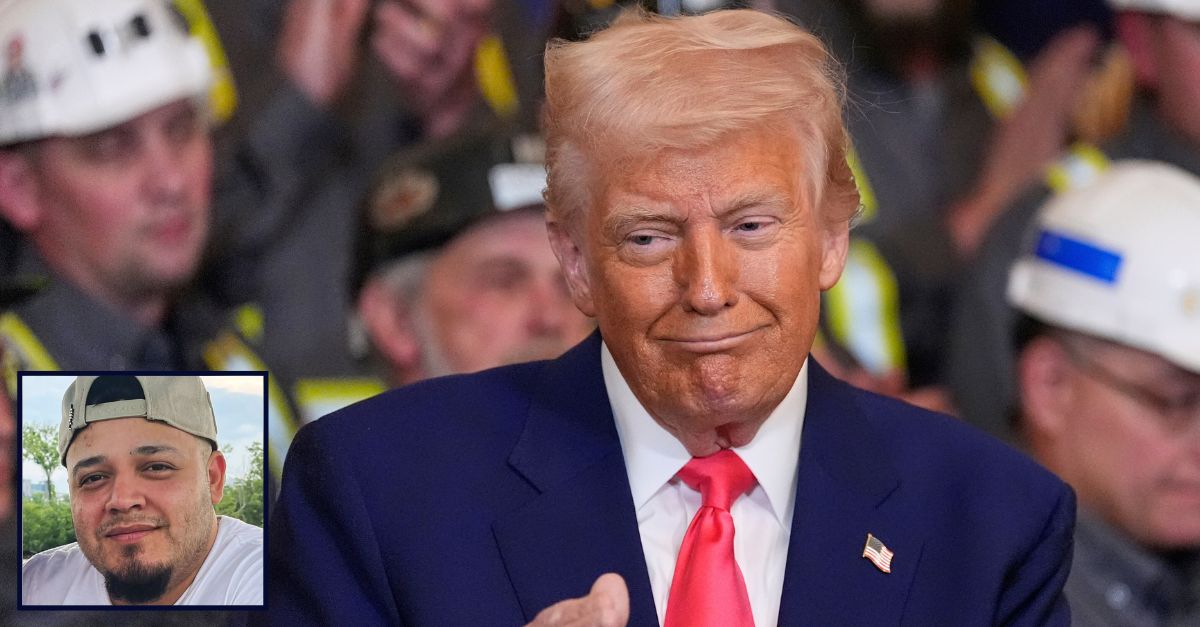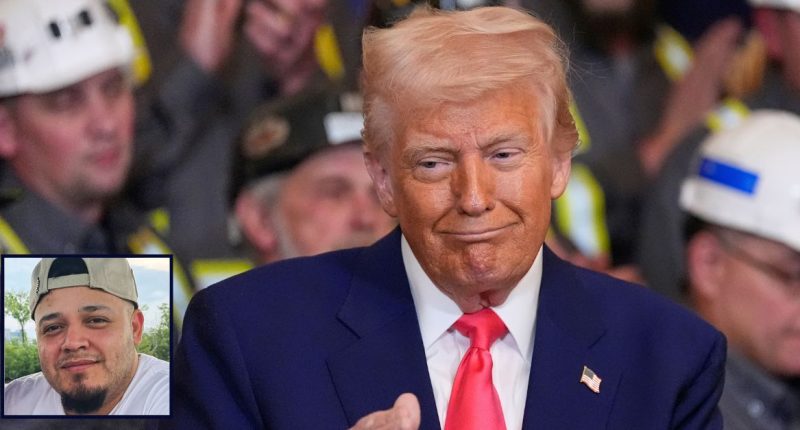
Main: President Donald Trump during an event on energy production in the East Room of the White House, Tuesday, April 8, 2025, in Washington (AP Photo/Alex Brandon). Inset: Kilmar Abrego Abrego Garcia in undated photo (CASA).
The Trump administration over the weekend continued to defy an order from the U.S. Supreme Court instructing the government to provide details about the steps it had taken to “facilitate” the return of a Maryland resident mistakenly deported to a notorious work prison in El Salvador last month. The Department of Justice on Sunday asserted that under the high court’s order — which largely affirmed a lower-court ruling — it was not required to work with Salvadoran officials so long as the government removed “any domestic obstacles” that would otherwise impede Kilmar Abrego Garcia from returning to the country.
In a seven-page filing on Sunday, the administration dug in its heels, arguing that federal courts do not have the authority to direct the administration to engage with the government of El Salvador at all, setting the stage for what is likely to be another eventual showdown at the Supreme Court.
The Justice Department further asserted that interpreting the term “facilitate” to require any additional action on behalf of the administration would not be “tenable — or constitutional.”
“This reading follows directly from the Supreme Court’s order. It tracks longstanding executive practice. And it comports with how the federal courts have understood the outer bounds of their own power,” the filing states. “On the flipside, reading ‘facilitate’ as requiring something more than domestic measures would not only flout the Supreme Court’s order, but also violate the separation of powers. The federal courts have no authority to direct the Executive Branch to conduct foreign relations in a particular way, or engage with a foreign sovereign in a given manner. That is the ‘exclusive power of the President as the sole organ of the federal government in the field of international relations.””
Since last week, the government has refused to provide any additional information on Abrego Garcia’s status other than to notify a U.S. District Court in Maryland that he was alive and in El Salvador, despite the court requiring daily status reports regarding his return to the country.
In the Trump administration’s view, it cannot be ordered to “make demands” of the Salvadoran government or send U.S. officials to the country in connection with Abrego Garcia’s return, as the plaintiff’s attorneys have requested of U.S. District Judge Paula Xinis, because such measures could potentially violate El Salvador’s sovereignty.







